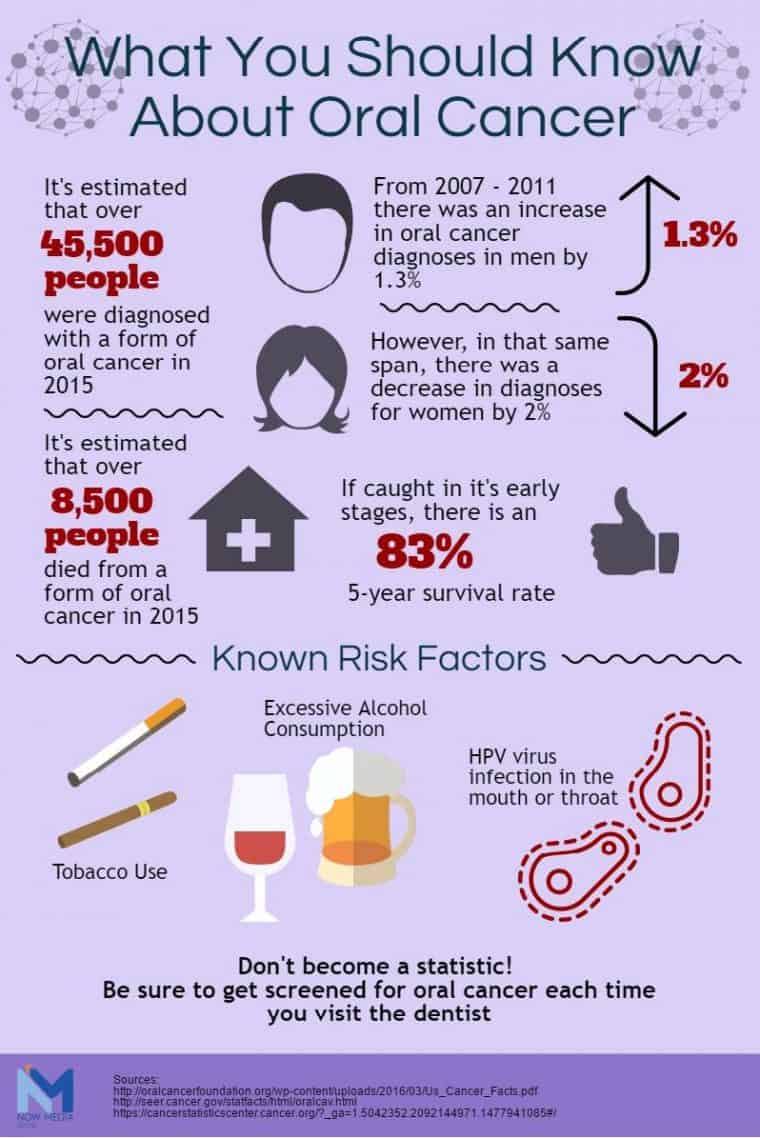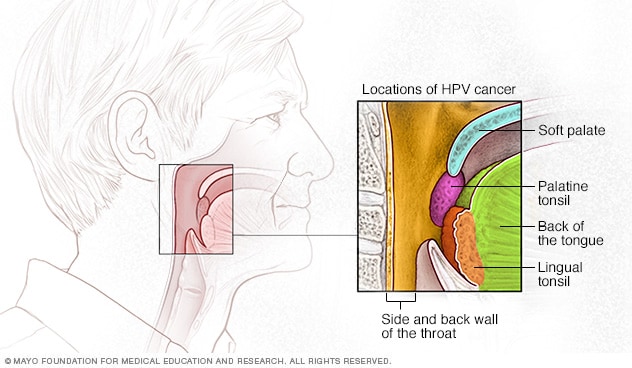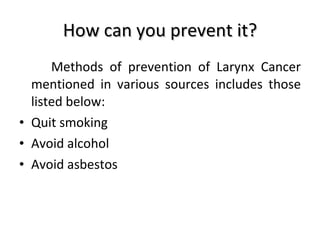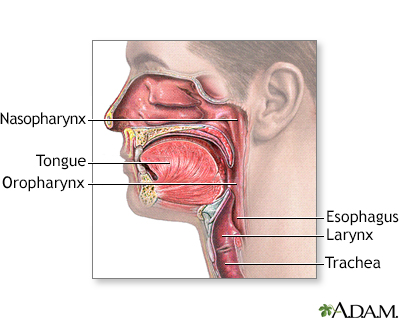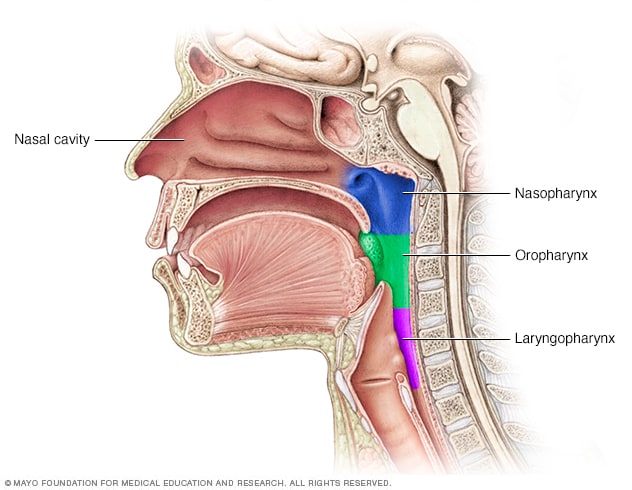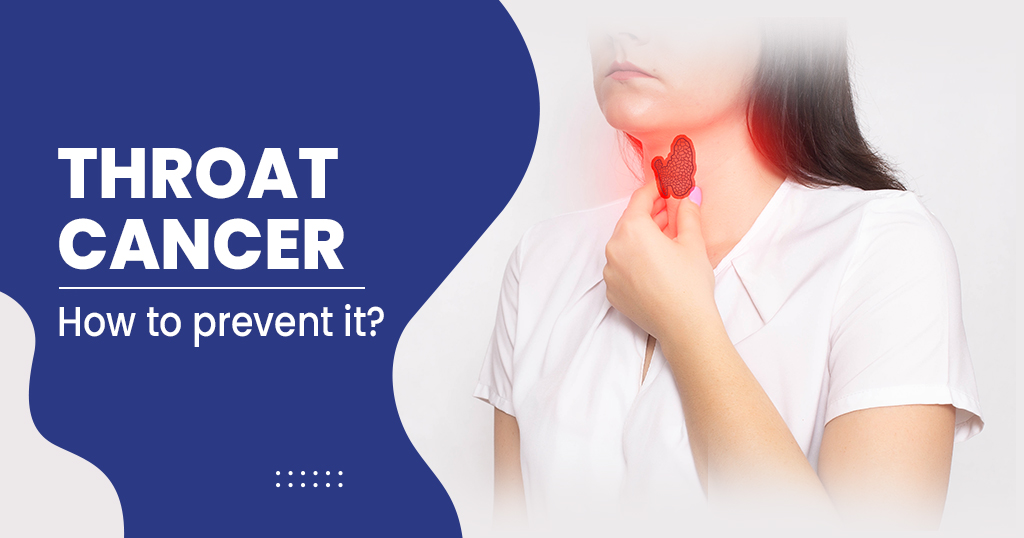First Class Info About How To Prevent Laryngeal Cancer
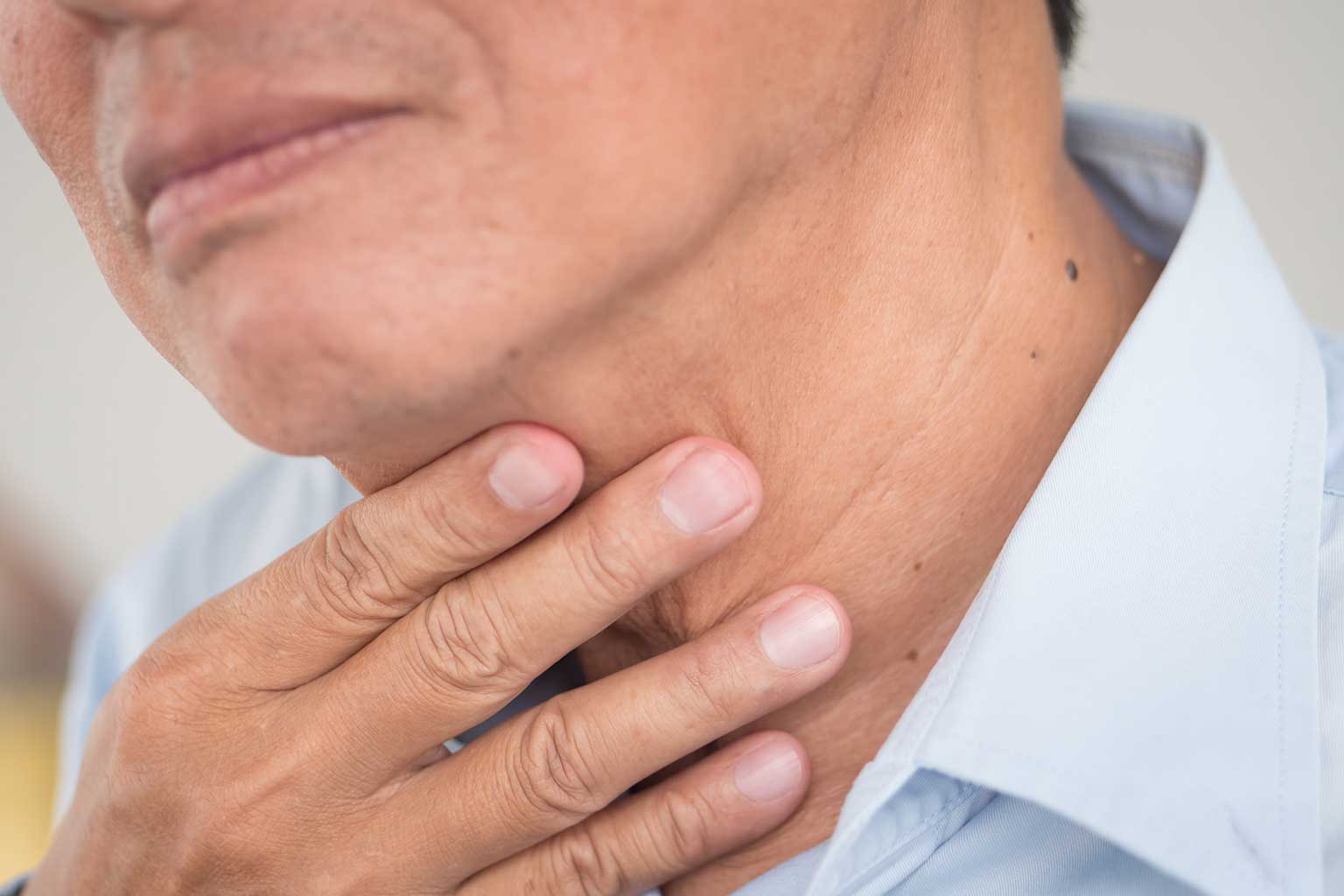
Stages and outlook (prognosis) after a cancer diagnosis, staging provides important information about the extent of cancer in the body and likely response to treatment.
How to prevent laryngeal cancer. See what it's like to be a member. Oral cavity, oropharyngeal, hypopharyngeal, and laryngeal cancers prevention approaches include avoiding or reducing risk factors like smoking, alcohol, and oral hpv. Symptoms and signs of cancer of the larynx, the organ at the front of the neck, include hoarseness, a lump in the neck, sore throat, cough, problems breathing, bad breath, earache,.
Oral cavity, oropharyngeal, hypopharyngeal, and laryngeal cancers prevention key points for this section avoiding risk factors and increasing protective factors may help. How to effectively prevent the occurrence of laryngeal cancer 1、 no drinking. Patients with laryngeal cancer who continue to smoke and drink are less likely to be.
Do a good job of comforting and explaining patients and their families,. If you smoke, reduce or eliminate tobacco use in all. Also, limited data exist to support claims that prophylactic treatment of gerd with.
For more about how gene changes can lead to cancer, see genes and cancer. Ct or mri scans provide detailed images of the body. There is no way to completely prevent laryngeal or hypopharyngeal cancer.
Drinking a lot for a long time can lead to congestion and edema of the larynx, malnutrition and. Don't use tobacco using any type of tobacco puts you on a collision course with cancer. The two most important risk factors for.
But there are things you can do that might lower your risk. The larynx, commonly called the voice box, is a cartilage encased organ with three critical functions: Stopping smoking and avoiding alcohol are paramount in the primary prevention of laryngeal cancer.
/throat-cancer-514095_final_EDITED-f554cb4d53bb47cd8a1a9c45a32a7356.png)
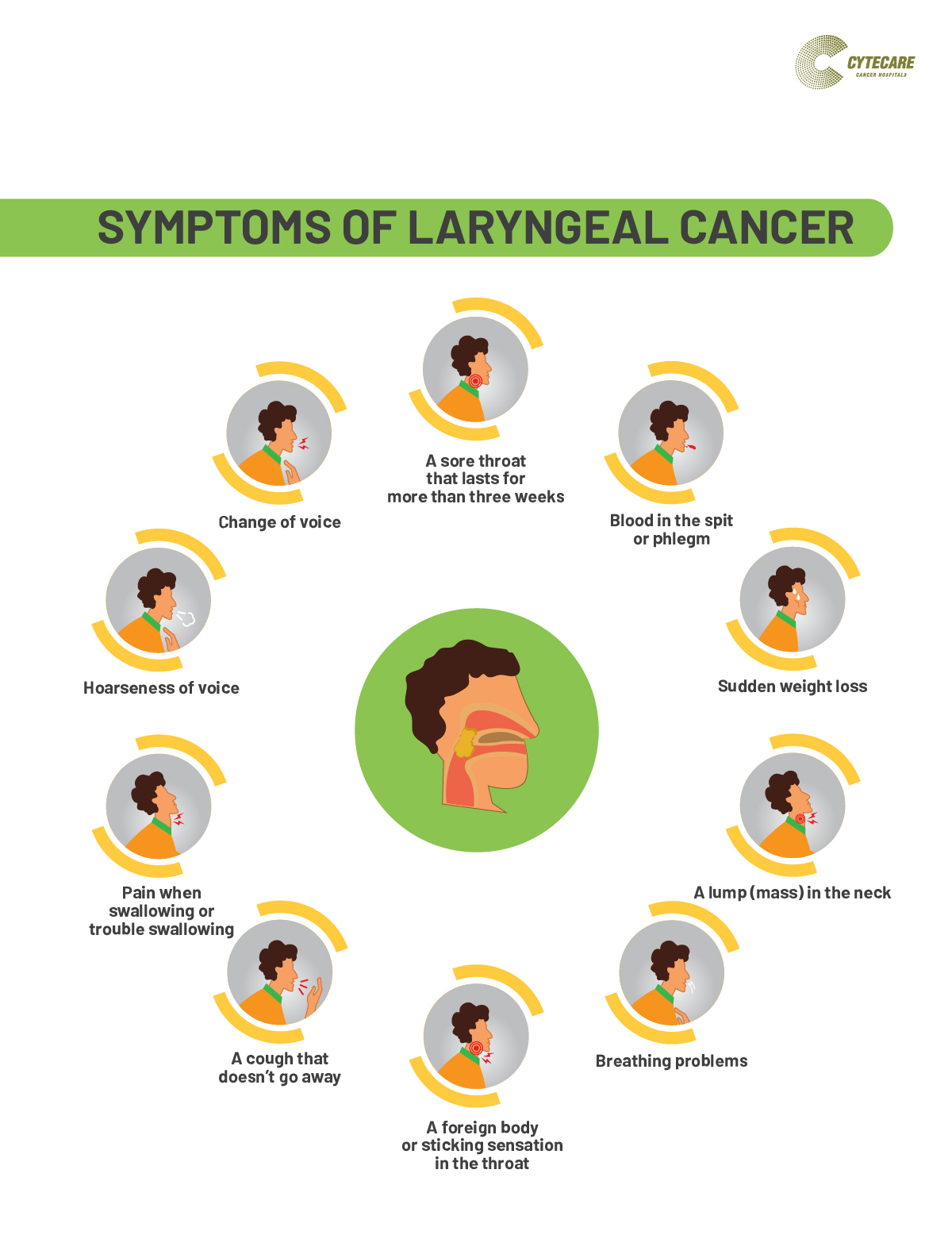

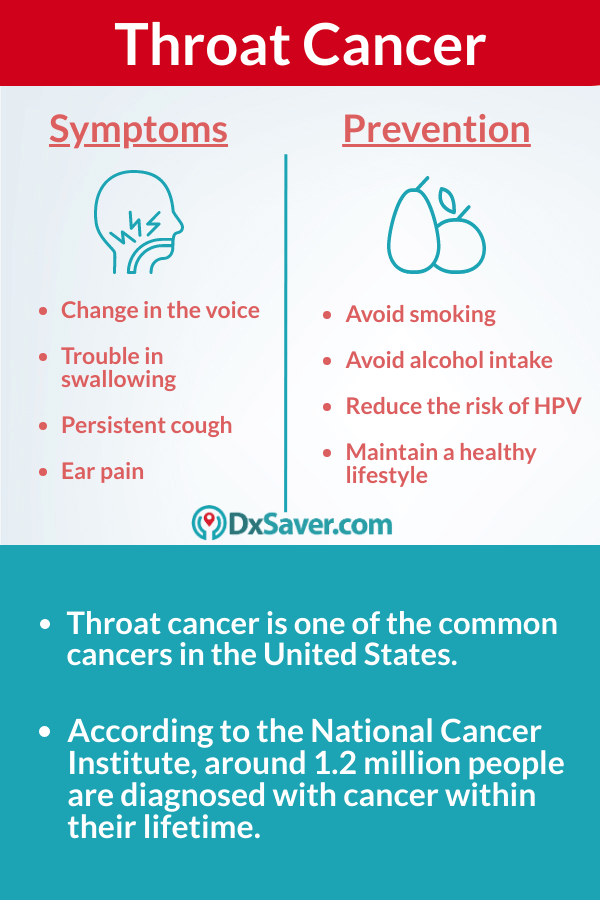

/throat-cancer-514095_final_EDITED-f554cb4d53bb47cd8a1a9c45a32a7356.png)

